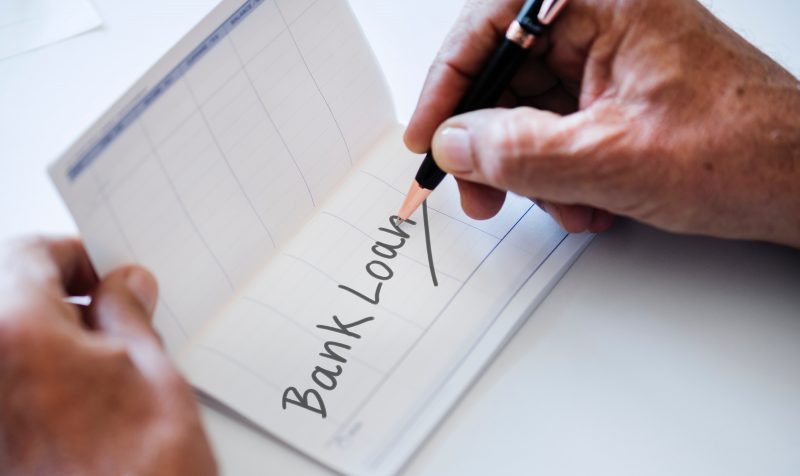Financing a Car in Ireland? Here are your Options!
Loans vs Leasing vs Hire Purchase vs Personal Contract Plans
Car finance has been on the increase in Ireland since 2015. In January 2019 the proportion of vehicles offered for sale (across all years) with finance outstanding was at 16.61% – the highest level Cartell.ie has ever recorded.
The increase in car finance could be directly related to the multiple options now available. New cars seem more affordable and/or manageable with dealers and garages promoting low interest PCP, PCH and HP schemes. Nearly-New and Used cars can be financed instantly (within an hour) from most garages. So, car finance options best suit and how do they differ from one another?
Car Loans
If you are considering buying a vehicle outright but you do not yet have the complete desired funds, a car loan is one option. You will receive the money from the bank which is often an unsecured loan which you then use to buy a car.
The car is yours as soon as you purchase it, but you obviously must repay the loan amount (plus interest). Repayments to the bank are generally made via monthly instalments over a 1 to 5-year term. The interest rate will often be more favourable with a credit-union and will differ depending on the length of the loan. However, the rates from dealerships and garages are becoming more and more competitive.
Considerations
When a loan is taken out the car does not have a financial interest listed against it, the loan is often unsecured, and the car loan is personal to the intended recipient – so a future purchaser may take title of the car even if the car loan was not paid off in its entirety by the original loan recipient.
In a case like this, where a loan is not paid back in full to the bank, the bank would ordinarily look to secure judgment against the loan recipient for the outstanding amount.
Obviously, the bank would look at the option of seeking an order to repossess the car, but, if the car has already been sold then the bank can seek judgment against another asset.
Personal Contract Hire (PCH) & Leasing
If your goal is to simply have use of a vehicle for a set period (generally 2 – 5 years) and you do not want ownership of said vehicle when the term concludes, then PCH is an option for you. This is generally a more popular option for Businesses which would lease a fleet of company cars, but it is also a valid option for public consumers also.
The payment procedure for PCH plans generally require an upfront payment (usually 3 months of the lease). The remaining costs are a static monthly fee. These monthly payments are normally higher than the equivalent vehicles leased through PCP, but over the entire contract you’ll typically pay less on a PCH.
On occasion a maintenance package will be included. This covers things like annual car tax and/or servicing.
There are strict terms and conditions to follow such as limits to the number of miles/kilometres you can do. You will also have to return the car exactly as you received it. Therefore, you must not make any modifications (e.g. tow bar) and it should be in “good repair and condition”.
Finally, if you are considering taking the vehicle abroad you may need written confirmation from the car finance company.
Considerations
You will not be able to purchase the car at the end of your contract – you will have to hand it back. Before signing the lease, you will have to agree on the number of kilometres you expect to cover throughout the term. If this limit is exceeded costs will be incurred. When the contract is signed, you’ll be tied into payments until it comes to a natural end. If you wish to stop at any time, there may be an additional cost.
Hire Purchase (HP)
If you wish to acquire and own a vehicle but you don’t have the adequate funds to purchase outright, Hire Purchase is an available option.
When signing a Hire Purchase agreement, there are 2 separate payment elements. Firstly, an upfront deposit is required, followed by; monthly instalments which cover the whole value of the car. Once you have successfully completed all the monthly payments required: the car is yours.
Typically, the payments are spread over 3 to 5 years, including the initial upfront fee. Generally, the upfront fee is in the range of 10% of the vehicles overall value.
The main benefit of Hire Purchase is, you can take ownership of a vehicle without “breaking the bank” initially. Also, as the vehicle will be completely yours you are not be tied to a mileage limit.
Considerations
With Hire Purchase contracts, the monthly instalments can be considerably higher than PCH or PCP. If you are thinking of taking out a HP contract it is worth comparing the monthly fees associated with all types of car finance to ensure you select the option which best suits your needs and budget.
If for some reason you decide to sell the car, you will be required to pay off the remaining balance. This may incur a fee depending on the financier.
Personal Contract Purchase (PCP)
PCP finance is like an amalgamation of Leasing and HP contracts. You will have to pay a deposit and will have monthly payments to make. However, instead of the monthly payments paying off the value, these payments are contributing to the depreciation of the cars value. If you wish to keep the car at the end of the contract, you’ll be required to pay a final fee known as a balloon payment.
At the beginning of the PCP finance contract, there is a Guaranteed Future Value (GFV) determined. This sets out what the provider expects the car to be valued at when the contract comes to an end.
Essentially, what you’ll be paying is the value of the difference between what the car is when you take out the contract, compared to what the value of the car will be at the end – with the addition of interest. This is divided into chunks to be paid over a certain period, for example 3 years.
It is likely your monthly instalments will be lower than the same vehicle on HP.
Upon completion of the contract, you’ll have three options to consider:
- You can pay the balloon payment and keep the car.
- You can give the car back. There will be nothing left to pay as you’ve paid the Guaranteed Future Value.
- You can use your car as a part exchange. Swapping it and paying the remaining balance of the car finance agreement.
- Should you wish to pay your final balloon payment early, you’ll have to cover the cost of the depreciation between when you took out the contract and what the vehicle is worth now. It might be the case that you’re in positive equity, which will allow you to use this as a deposit on your new car.
If you desire a new car every few years, PCP is the contract that would suit best.
Considerations
If you unfortunately have an accident during your PCP contract, you will be liable for all required repairs. Also, before you sign your PCP contract, you will have to agree upon the term mileage limit. Any excess mileage could incur additional charges. If you decide to sell the car, you must first settle the final payment.
Finally, you’ll have to stay with the same dealer to be able to use any remaining equity as a deposit for a new car through PCP.
Summary
It is impossible to say which car finance option is the best choice as it depends on the individual. Each individual/family will have different budgets and requirements. What we can say is, when looking for a car finance option, make sure to consider all the available options. The only way to get the best option for you is to shop around.
Stay up to date
Make sure you’re following Cartell on Facebook, Twitter, Instagram and Linked In for the latest news and Cartell.ie promotions.

